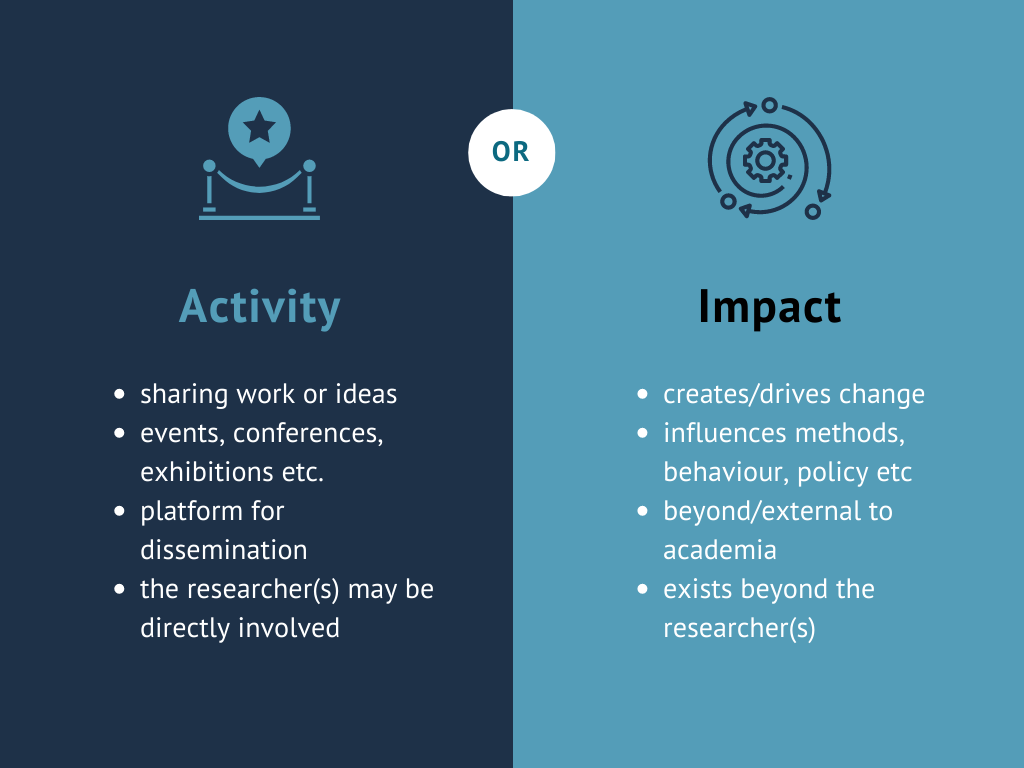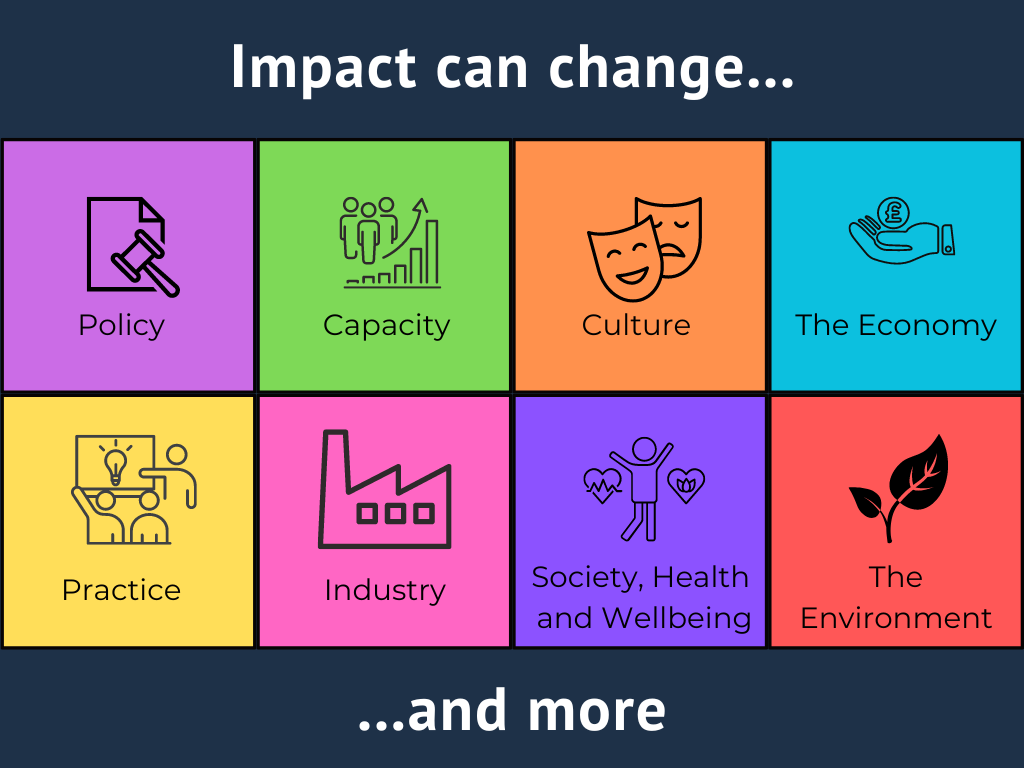Research impact is using your research’s insights or methodologies to make a difference to the world. It is defined as ‘a demonstrable effect, change or benefit beyond academia’.
It is common to speak of ‘applying’ or ‘translating’ knowledge out of academic research. These metaphors represent all the activities you could undertake with your work toward making a difference. These include undertaking knowledge exchange with stakeholders, spinning-out a company, delivering training, running events, hosting exhibitions, etc.
Why is research impact important?
Research impact has benefits for researchers, the University of St Andrews, and the wider world.
It enables you to create positive change in the world and improve people’s lives. By working with stakeholders and research users, you can access new collaborations and resources. It lets you demonstrate your methods and insights to new audiences, and validate your work ‘in the field’. It enables you to make your grant applications more ‘concrete’ to research funders and can show them value for money.
Research impact connects research to the wider world and increases the University’s contribution to social good. It can strengthen the University’s links to other organisations, enabling networking, collaborations, and our excellent reputation. Research impact is recognised at an institutional level by major stakeholders including the UK and Scottish Governments and Research Councils. The University’s global contribution through research impact is showcased and assessed as part of the Research Excellence Framework (REF). However, it is important to remember research impact is not constrained to REF parameters.
By taking research thoughts, ideas, products and expertise to the world beyond academic research and teaching, research impact produces societal benefit. It can make new technologies, improved medicines, environmental protections, more inclusive legislation, the options are endless. It can help you to generate a framework for scaling from local to global issues, and it can be an anchoring platform for bringing people together worldwide. It can empower the people with whom you work, collaborating to amplify their voices and tackle the complex issues they experience.
How can my research have impact?
To optimise impact potential, it is important to embed it into project work as early as possible whilst being flexible to intended and unintended benefits and outcomes. Research impact journeys generally start with some form of engagement, which can involve knowledge exchange activities. The activities will lead to the changes that we count as impact. A common misperception is that impact is synonymous with activities. Whilst activities can be vehicles for the ideas which lead to change, they are not typically considered change themselves.

Where can I find support for research impact?
You can email the Research Impact team at [email protected].
This website also includes a series of resources to help with developing, evidencing and sustaining research impact. They include quick guides on:

